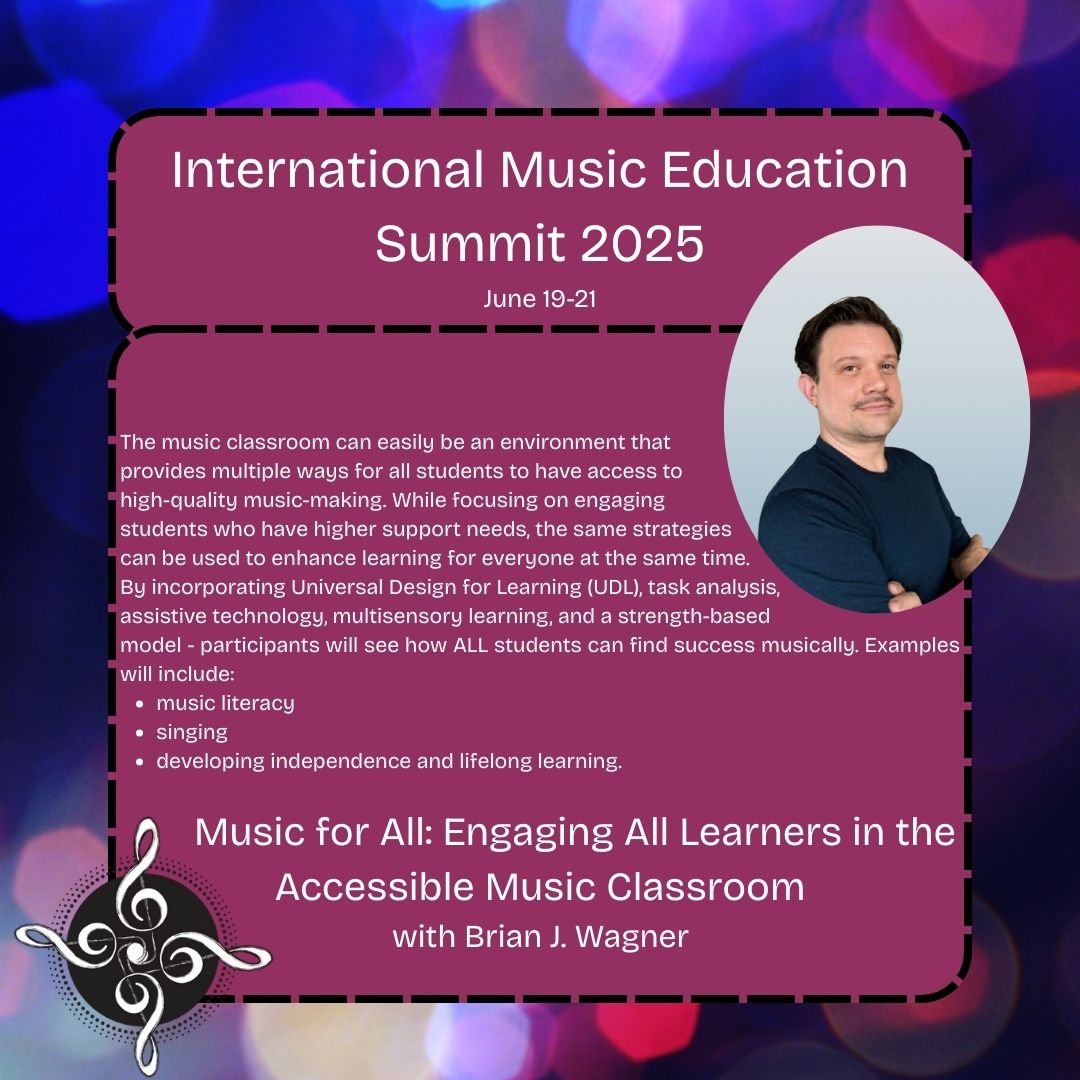When directors rehearse their ensembles, they assess a sea of information: pitch, intonation, posture, rhythms, and much more. After the cut-off, what is the first thing to address? In this session, Dr. Russell Greene will share research on how expert band directors evaluate performances and what novice teachers can do to avoid common distractors.
Read MoreAs music educators, we shape not only the musical skills of our students but also their understanding of the world. Our classrooms have the potential to be spaces of inclusion, critical thinking, and social responsibility. This workshop will explore how Diversity, Equity, Inclusion, and Justice (DEIJ) can be meaningfully integrated into music education—not just through socially conscious repertoire, but in the way we present, discuss, and engage with music.
Read MoreThe music classroom can easily be an environment that provides multiple ways for all students to have access to high-quality music-making. While focusing on engaging students who have higher support needs, the same strategies can be used to enhance learning for everyone at the same time. By incorporating Universal Design for Learning (UDL), task analysis, assistive technology, multisensory learning, and a strength-based model - participants will see how ALL students can find success musically.
Read More"Creating a Supportive Classroom Environment" is a pedagogical presentation designed to empower music educators with strategies for fostering inclusive and engaging learning spaces. This session highlights the essential role of the teacher in shaping a culturally responsive classroom, beginning with the concepts of being "Culturally Caring," which explores building strong student-teacher relationships and proactive behavior management through culturally affirming practices. "Curricular Choices" delves into auditing and replacing problematic repertoire, equipping educators with frameworks and resources to select authentic, culturally respectful music.
Read MoreIn this session, we will explore a growing challenge within the music education community: the difficulty faced by schools that wish to expand their course offerings but are unable or unwilling to hire additional faculty. We will discuss strategies for effectively managing the responsibilities of two positions within the time, space, and compensation constraints of one individual. While this may seem daunting, it is entirely achievable and can lead to rewarding outcomes.
Read MoreThe session will explore innovative ways to incorporate AI tools into your music classroom to enhance teaching, creativity, and student engagement. The session will highlight AI tools such as ChatGPT, Deep AI, and other AI Tools that can be used for music education. The session will begin by demonstrating how to access each tool and the basics they work. The session will provide examples of how each tool can be used for lesson planning, music analysis, composition, and personalized learning, saving time while enriching student experiences.
Read MoreThis session explores the process and essential considerations involved in composing and arranging for concert band, aimed at both novice and experienced educators. It begins with reflective questions to engage participants in thinking about their own teaching contexts and experience with composition. Attendees will explore the many benefits of composing, including fostering a deeper connection between conductor and ensemble, learning instrumental tendencies and techniques, and enriching the educational experience for students.
Read MoreThis session explores how AI may reshape music curricula, transform teaching roles, and prepare student for an AI-integrated music industry. Discover crucial ethical considerations and best practices for navigating this technological frontier while gaining valuable insights into future-proofing your educational strategies. Equip yourself with the knowledge to thrive in an AI-enhanced musical landscape.
Read MoreMany music teachers are now finding themselves assigned to teaching classes that they have never taught before and for which they have few or no resources. There has also been a sharp increase in the number of social media posts where middle and high school music teachers are asking for ideas for teaching general music and music appreciation classes.
Read MoreIn this session, you will discover the transformative power of three dynamic keys to revolutionize how you teach music theory! The Ultimate Music Theory Revolution empowers educators to seamlessly blend rapid student learning with income growth without adding a beat to their teaching time.
Read More









